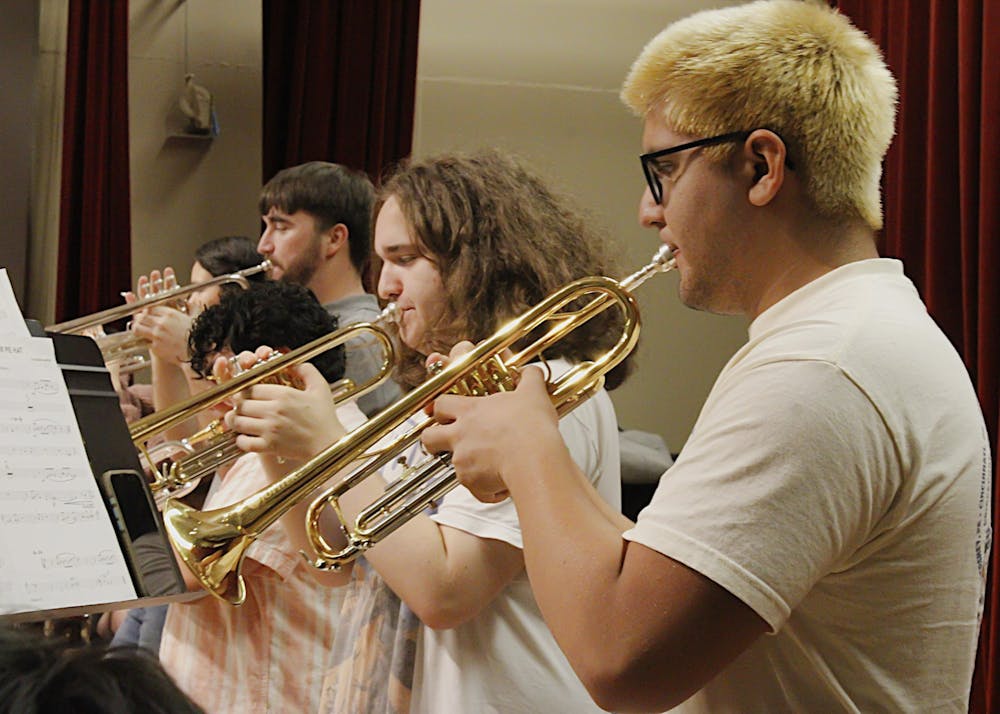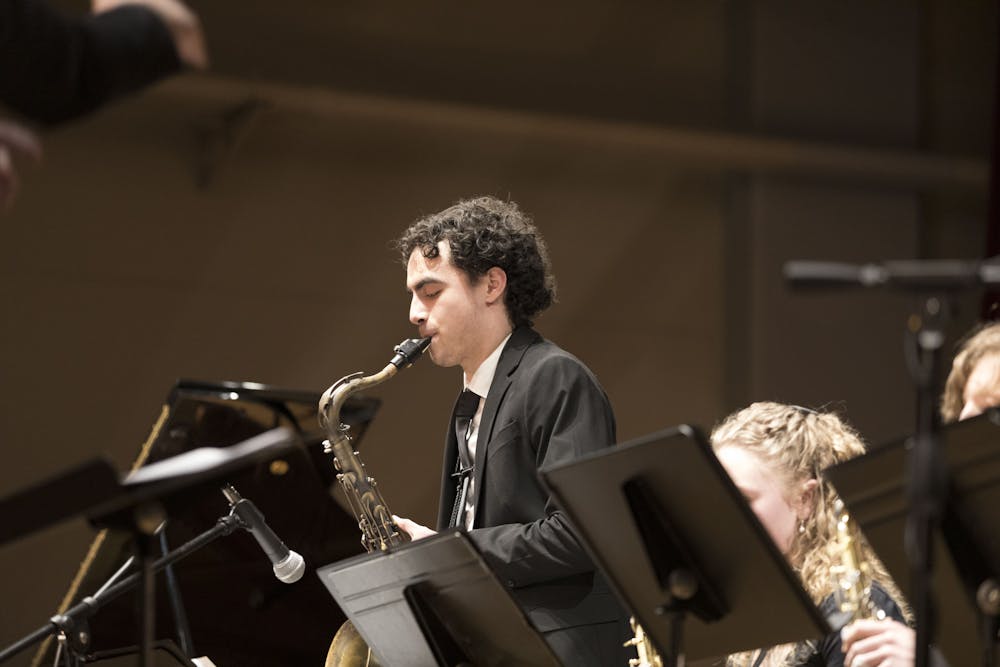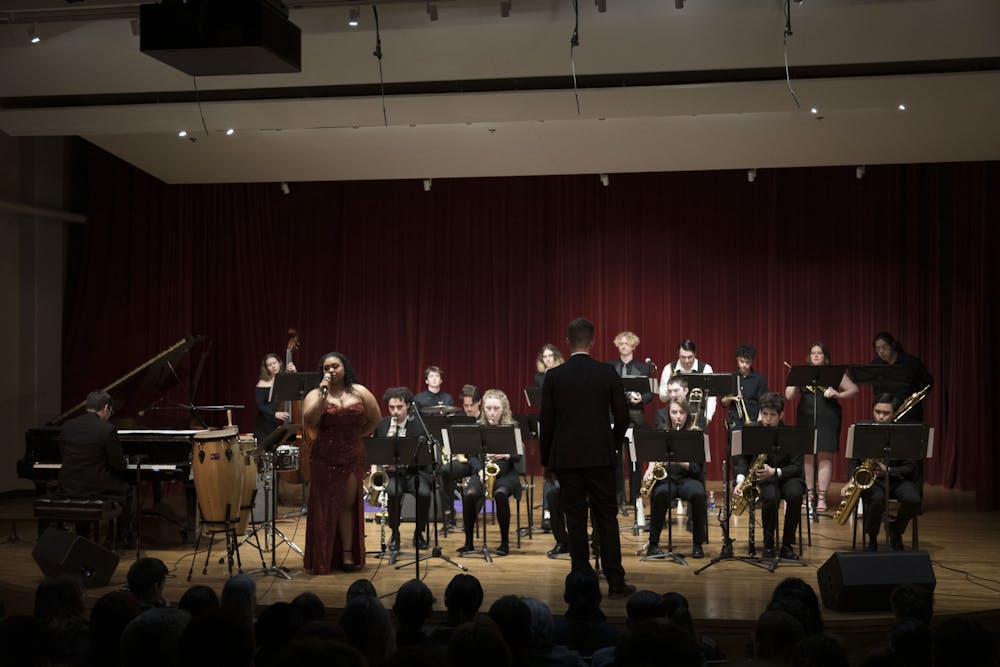On any given Tuesday and Thursday in September, the unmistakable sound of tuning trombones and beating drums can be heard inside Mago Hunt. Standing on the stage alongside the rest of the ensemble, junior music major and lead trumpet Mekhi Morlin takes a breath and begins to play.
Slowly, the notes coming from each player begin to merge into a song.
“Every time we get close to a concert, it's always awesome to be playing with everyone,” Morlin said. “Everyone knows their music. We're just jamming out [...] and so it's really fun to be playing with everybody at this high level.”
The work of Morlin and 21 other students will come to fruition as the Jazz ensemble takes the stage on Oct. 4 in the music department’s first concert of the season. The performance will be held in the Mago Hunt Recital Hall at 6 p.m., with free admission for all, including those outside of the UP community. Attendees are encouraged to arrive 15 minutes early to secure a spot, although there will be additional standing room once seats have filled.

The hour-long concert will feature six songs, two of which were originally performed virtually during the COVID-19 lockdown, according to Assistant Professor of Music and Director of Jazz Studies Don Norton.
Auditions for the ensemble were held on Aug. 25 and practices have been running twice a week since. During rehearsals, the band honed their skills by running through the setlist.
“We'll warm up, we'll talk a little business, and then we'll just rehearse all of our songs,” Norton said. “That involves a lot of things [like] playing the music, listening to it, helping individual students and individual sections learn their parts.”
The concert will have a mix of crowd-favorite songs like Frank Sinatra’s “The Way You Look Tonight” and pieces that have been adapted for a big ensemble like “I Can’t Stop Loving You” by Quincy Jones.
“[‘I Can’t Stop Loving You’] is this swinging country song that [...] you can just feel [is] awesome,” Morlin said.
The first jazz concert of the year will also be performed differently than in the past. Traditionally, jazz concerts at UP have been split into two parts, an initial performance by the jazz combo followed by a longer performance from the ensemble. According to Norton, jazz combos are smaller groups that emphasize improvisation. In contrast, an ensemble is a larger group that usually performs compositions.
The combo, normally a group of three to six performers, is currently inactive. According to Norton, most of the members graduated last year and the newcomers are still getting into the groove of balancing academics and playing music during the semester.
Even without the combo, the jazz ensemble will still maintain musical improvisation and expression through solos. Improvising is an element of jazz that distinguishes it from other types of music, according to Norton.
“I just love the art form [of jazz],” Daniel Leon, junior music major and lead tenor saxophone player, said. “I love how you get to express your ideas and be you, and [...] that process of improvising, having those solos, […] I think that's super special to me.”

According to Leon, performing alongside other ensemble musicians has helped him get in the zone for jazz — an experience he also considers energizing and freeing.
Additionally, UP’s jazz ensemble is larger than other collegiate ensembles, which typically have 15 - 20 musicians whereas UP’s ensemble has 22. For Norton, performing music at a collegiate level is an important opportunity that he doesn’t want to limit for students.
“I don't want to limit the size of the jazz ensemble, just for the sake of tradition,” Norton said. “I'm very pleased that the jazz ensemble is actually a little bit larger than a collegiate jazz ensemble ordinarily would be.”
Though UP’s jazz ensemble is larger than typical, for Morlin, being involved with jazz and UP’s music department has placed him in a tight-knit, supportive environment.
“There's a lot of support from the faculty,” Morlin said. “They all really care about the students because we are such a small [music] program. They all really care about everyone succeeding.”
Samantha Zavala is a news reporter at The Beacon. She can be reached at zavala27@up.edu.








